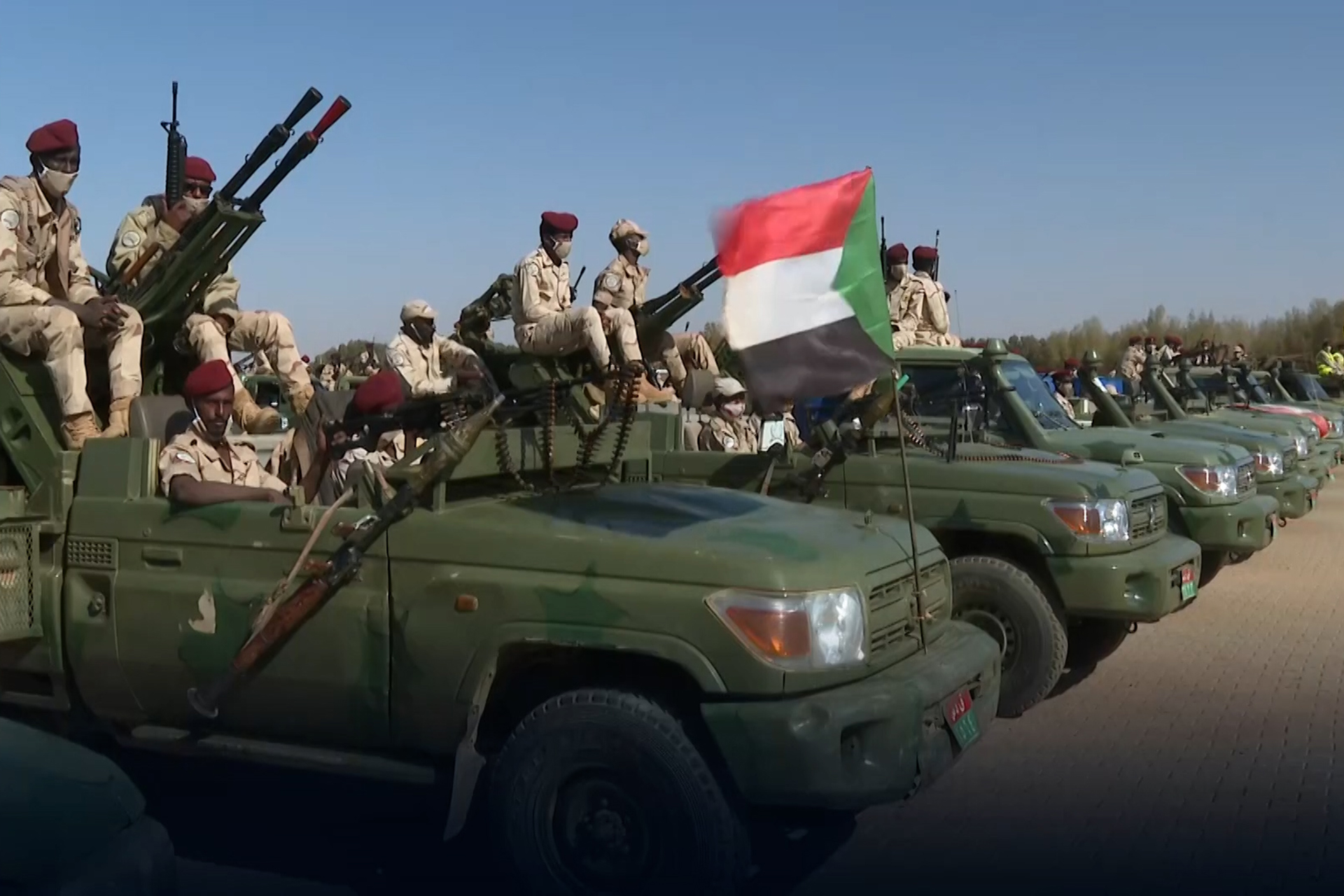The crisis in Sudan entered a very sensitive turn this morning after the outbreak of armed clashes between the two wings of the military component in Sudan, the army led by the President of the Transitional Sovereignty Council, the commander of the Sudanese army, Abdel Fattah Al-Burhan, and the Rapid Support Forces led by Mohamed Hamdan Daglo (Hemedti).
The current crisis between the two forces began to escalate last Thursday when the Sudanese army declared the RSF's movements, particularly in the city of Meroe, illegal.
The circumstances of the outbreak of clashes this morning in the capital Khartoum and in a number of cities in Sudan are still unclear.
The Sudanese army and the Rapid Support Forces have accused each other of initiating the fighting, amid the state of shipping and mobilization in which the two sides have been engaged for days.
Army Novel
In a statement to Al Jazeera, the head of the Transitional Sovereignty Council, Sudanese army commander Abdel Fattah al-Burhan, said that the Rapid Support Forces are the ones who attacked the army headquarters in the guest house, which is the residence of the President of the Sovereignty Council, and expressed his surprise that the Rapid Support attacked his house at nine in the morning (Sudan time).
The head of the island's sovereign council added that the Rapid Support Forces harassed the army in the Sports City area (south of the capital Khartoum), from which the spark of clashes began today.
According to the head of the Sovereignty Council in Sudan, the Rapid Support Forces infiltrated Khartoum airport through the Hajj and Umrah hall, noting that they burned some planes, adding that the armed forces dealt with the Rapid Support elements at the airport.
For its part, the Sudanese army said that it did not start the aggression, and what happened was that its forces were attacked by what it described as rebel forces, in reference to the Rapid Support Forces.
Army spokesman Brigadier General Nabil Abdallah told AFP: "Fighters from the Rapid Support Forces attacked several army camps in Khartoum and different areas in Sudan." "The clashes are continuing and the army is doing its duty to protect the country," he said.
Rapid Support Novel
On the other hand, Rapid Support Commander Mohamed Hamdan Dagalo, nicknamed Hemedti, expressed regret "for fighting with our people, but the criminal is the one who forced us to do so, the fighting was imposed on us after the attack on us and our siege, the battle will be decided in the coming days."
He stressed that his forces did not attack anyone, and "our fighting is a reaction to our siege and assault, and we were surprised today by large forces that surrounded our forces in the ground of the camps, and our things are very good and we control all headquarters."
He stressed that the RSF has no animosity with the army, and expressed regret "for fighting with our people, but the criminal is the one who forced us to do so, the fighting was imposed on us after the attack on us and our siege, the battle will be decided in the coming days."
The Rapid Support Forces also said in a statement that they were "surprised this Saturday morning by a large force of armed forces entering the headquarters of the forces (affiliated with the Rapid Support) in the land of the camps "Soba" in Khartoum and striking a siege on the forces present there and then heaped on them with a sweeping attack with all kinds of weapons.
Pre-confrontation developments
The relationship between the two wings of Sudan's military component (the army and the Rapid Support) has reached an unprecedented level of tension in recent days, with the army warning that the country is at a "dangerous juncture" after the deployment of the Armed Rapid Support Forces in Khartoum and major cities.
Differences between the two sides have surfaced since talk of integrating these forces into a unified army began.
On June 2021, <>, Hemedti announced that talk of integrating the RSF into the army could dismantle the country, saying that it was a large force and not a battalion or company.
The differences developed until Hemedti stated in a television interview last August that Burhan's measures to dissolve the Sovereign Council in 2021 had failed, and that Sudan was getting worse.
On the fifth of last December, with the signing of the framework agreement establishing the transitional period, the dispute between the two parties returned strongly on the issue of integrating the Rapid Support Forces.
This was confirmed when army representatives withdrew from the security and military reform workshop at the end of March, hours before its closing session, because its recommendations were not included in a timetable for the merger process.
On the twelfth of this month, the Rapid Support Forces began deploying in areas of the capital Khartoum and some cities without the knowledge or coordination of the army leadership, which provoked the anger of the armed forces.

